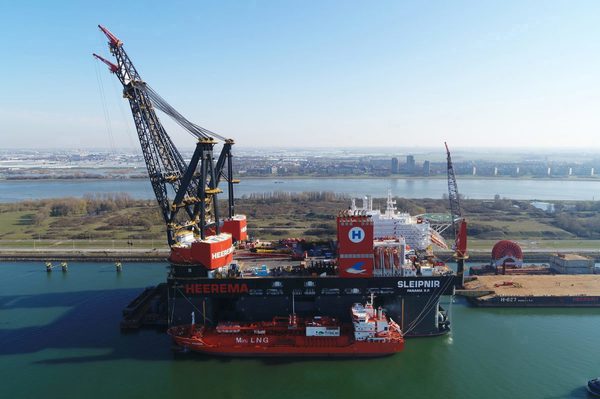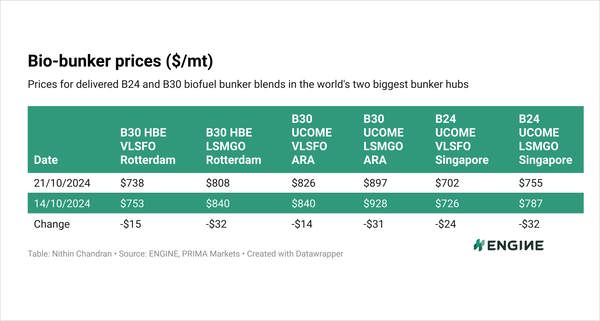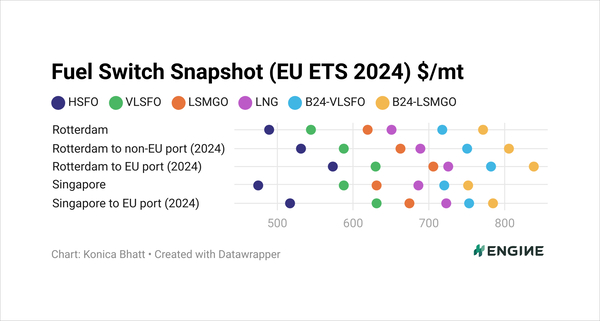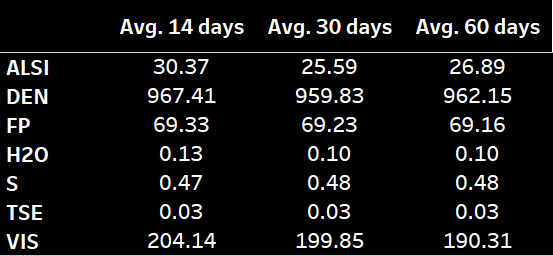LNG Bunker Snapshot: Rotterdam's price falls on ample gas supply
Rotterdam’s LNG bunker price has shed some due to strong supply and lower gas demand in Europe, while Singapore’s price has increased amid concerns about potential supply constraints in northeast Asia.
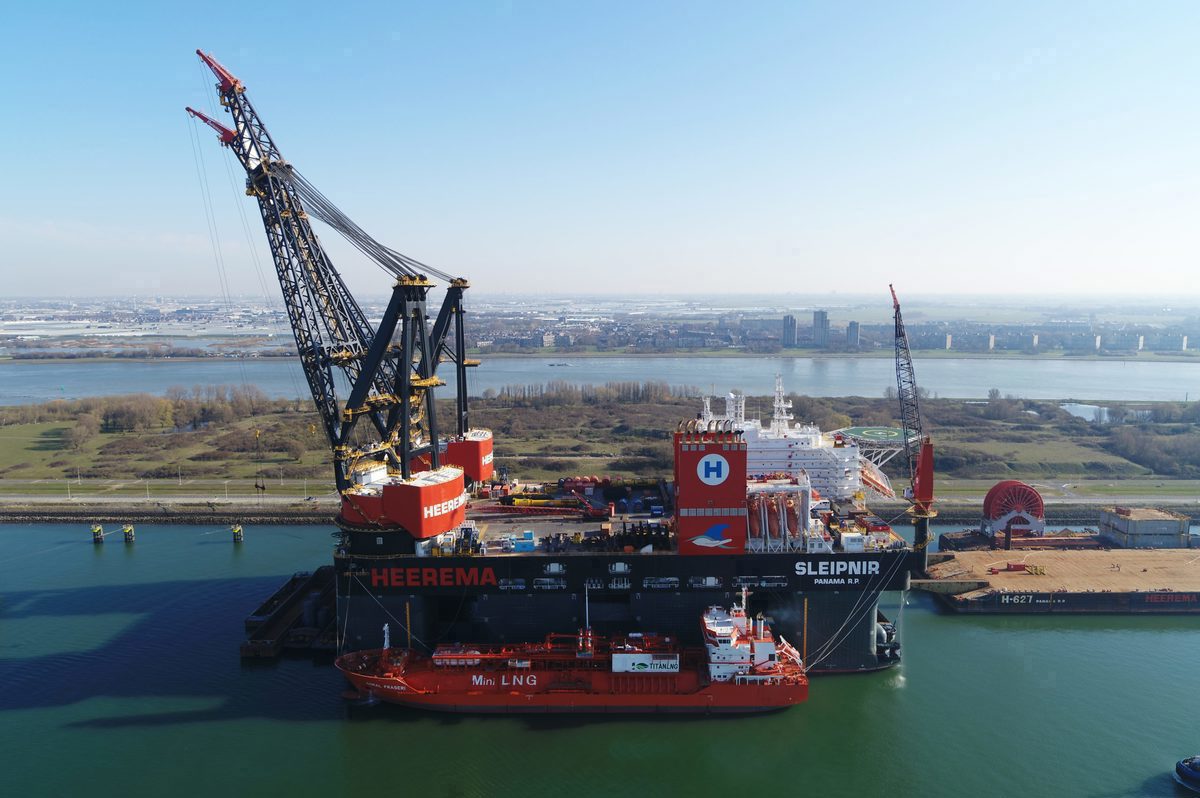 PHOTO: A bunker vessel delivering LNG to a semi-submersible crane vessel in Rotterdam. Titan
PHOTO: A bunker vessel delivering LNG to a semi-submersible crane vessel in Rotterdam. Titan
Changes in weekly LNG bunker prices:
- Rotterdam down by $3/mt to $780/mt
- Singapore up by $11/mt to $821/mt
Rotterdam
The LNG bunker price in Rotterdam has dropped by $3/mt to $780/mt in the past week. The port's benchmark has tracked the downward movement in the front-month NYMEX Dutch TTF Natural Gas contract.
A key factor in this price movement is the strong LNG import activity in northwest Europe, with terminal flows reaching the highest levels since April, ING’s Warren Patterson said.
Furthermore, reduced demand for gas in Europe is also exerting downward pressure on prices. An unusually mild autumn has lessened the immediate need for heating, and with European gas storage nearing capacity at 95%, compared to the five-year average of 92%, there is less urgency to procure additional LNG cargoes. This has kept pressure on the Rotterdam's LNG bunker price.
Singapore
Singapore's LNG bunker price has risen by $11/mt to $821/mt. This increase has been driven by a higher NYMEX Japan/Korea Marker (JKM) price.
This price rise reflects market concerns about potential supply constraints, despite current demand remaining relatively subdued..
Most Japanese utilities have sufficient LNG reserves, however, the offline status of some coal and nuclear power plants due to maintenance in the region could deplete stocks and boost demand for LNG.
In Japan, Kyushu Electric’s 700-MW coal-fired Reihoku plant has been offline since August, increasing reliance on alternative power generation sources, including LNG, Rystad Energy said. In South Korea, several nuclear plants are undergoing maintenance, including the Hanbit and Hanul units.
Although nuclear power and LNG are distinct energy sources, any reduction in nuclear output can indirectly increase LNG demand as the power sector seeks alternative energy sources to meet electricity needs.
By Debarati Bhattacharjee
Please get in touch with comments or additional info to news@engine.online

Contact our Experts
With 50+ traders in 12 offices around the world, our team is available 24/7 to support you in your energy procurement needs.

